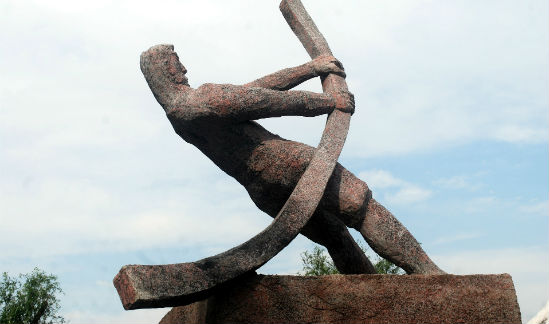Pulling Every Lever: More Mega Donors Blend Political and Philanthropic Giving
/
The uproar this spring over North Carolina’s “bathroom bill” has drawn new attention to Art Pope, a top conservative leader in that state. The law was passed by a Republican legislative majority that Pope helped engineer with millions in campaign contributions, while its biggest defender—the North Carolina Family Policy Council—gets much of its support from a foundation Pope chairs.
This isn’t the first time that Pope has mixed political and philanthropic dollars to push a policy agenda in North Carolina. In fact, such a dual-track approach has been key to his strategy for over two decades now, and explains why Pope is among the state’s most powerful people.
Pope keenly understands the different ways in which wealth can be converted into influence. Starting in the 1980s, he used the charitable funds stashed in the John William Pope Foundation, named after his father, to bankroll a network of conservative policy groups in North Carolina. He realized that ideas count for little if they aren’t turned into law, which is why he’s also used his family fortune—created through retail stores—to spread donations to scores of GOP candidates, party committees and PACs. In the past few years, these two tracks have converged with impressive force, as North Carolina’s one-party government has enacted a trove of right-wing policy proposals that were crafted and refined over many years—among them, the recent bathroom bill and a tough voter ID law, passed in 2013.
Art Pope isn’t alone in blending political and philanthropic giving in a push to redirect politics in one state. Alida Messinger—an heiress to a Rockefeller fortune—has given millions of dollars to nonprofits working on environmental and energy issues in Minnesota, as well as to protect women’s reproductive rights, fight poverty, and mobilize low-income voters in the state. Along the way, Messinger has carved a parallel path as one of Minnesota’s biggest Democratic donors, backing state party committees and PACs, and supporting dozens of candidates for office. That giving helped orchestrate a Democratic takeover of Minnesota’s state government, and the passage of a burst of progressive legislation in 2013 and 2014 by Governor Mark Dayton.
At the national level, hybrid donors with deep pockets have proliferated in recent years, and many are active in the 2016 presidential election. They include Tom Steyer, the Koch brothers, Michael Bloomberg, George Soros, Herbert Sandler and Robert Mercer—all of whom are engaged in large-scale giving through both political and philanthropic channels to promote their views.
Mercer, who made his fortune in hedge funds, is the most notable newcomer to this terrain. He drew attention last year when he emerged as Ted Cruz’s top donor—financing the senator’s failed presidential bid to the tune of over $13 million. Mercer has also been the main donor to the John Bolton Super PAC, pumping $2 million into an effort to promote hawkish national security ideas in the 2016 cycle.
Mercer’s philanthropy leans just as far right. His Mercer Family Foundation gave out $18.3 million in 2014, with much of that money going to conservative and libertarian groups. The Federalist Society, for example, got $2 million. The Media Research Center, which attacks “liberal media bias” and has worked overtime this election season, got $3 million. Another grant, for $1 million, went to an obscure outfit in Florida, the Government Accountability Institute, which is headed by Clinton Cash author Peter Schweizer. GAI is a 501(c)(3), and Mercer gets the same tax deduction for donating to this group as he would to, say, the Salvation Army, but it appears that a chief mission of Schweizer’s operation is to wound the Democratic Party’s nominee for president.
There is nothing new, of course, about the wealthy writing checks for nonprofits and political candidates alike. Top contributors to the Democratic and Republican parties have long been turning up on donor rolls of groups like the Sierra Club, the Heritage Foundation, the ACLU, NARAL, and so on.
But one difference now is that America’s donor class is far wealthier than ever before—so they have more cash to pull every possible lever of influence.








